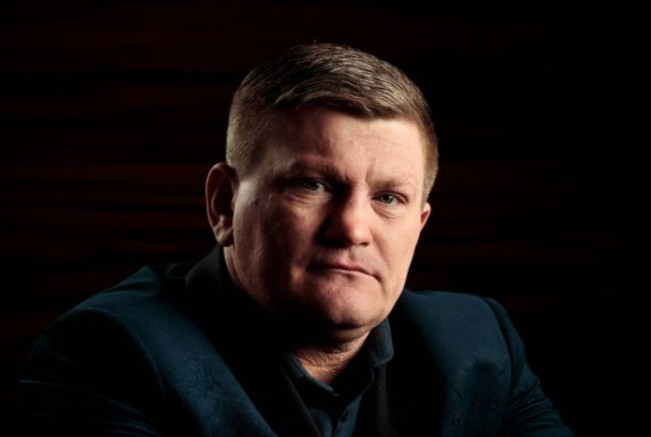Ricky Hatton Inquest Son Opens Up as Coroner Confirms Boxing Legend Took His Own Life
The megacity of Manchester continues to suffer following the woeful death of boxing legend Ricky Hatton, as the first hail of his probe opened this week.
The 46- time-old former world champion was found dead at his home in Greater Manchester on 14 September.
During Thursday’s opening hearing at South Manchester Coroner’s Court in Stockport, Senior Coroner Alison Mutch verified that Hatton had been discovered “unresponsive” at his home.
The provisional cause of death was listed as “hanging,” with a full probe listed for 20 March 2026.
Police have verified that no suspicious circumstances were surrounding his death, with the case formally referred to the coroner.
Before the probe began, Ricky Hatton’s son, Campbell, spoke about how his family has been managing in the weeks since the tragedy.
“Yeah, it’s been a bit of a whirlwind the last few weeks. Obviously, we’ve been leading up to the funeral, which was unbelievable to see the amount of love everyone had for my dad.
“There were thousands in the streets, and there was a lot of comfort to take from that,” he added, before revealing how his family are coping with the tragic loss.
“It has been very up and down, really, but just as a family, we’re trying to take each day at a time, really,” the 24-year-old explained.
At the funeral, Campbell said: “He always said he was more proud of his fanbase than all the belts and his titles.
“Surprised is probably the wrong word because it was obvious how much he was loved by the number of people who followed him all over the world to watch him box.
“To actually see everyone in the streets, it was a very long route that we went down, and there was never a point where the streets weren’t full. To actually see it in terms of the number of people, it was surreal, really.”
His words painted a picture of a family broken but supported by the love of suckers across the country.
Hatton’s burial, held last week, brought Manchester to a deadlock. Thousands lined the thoroughfares as his pall made its way through the megacity before a private service at the edifice.
Suckers, youthful and old, came out in force, some wearing boxing blankets, others signaling flags or holding prints of their idol.
The scenes were emotional, sincere, and a reflection of how deeply Hatton was loved, not just as a prizefighter, but as one of Manchester’s own.
Known as “ The Hitman, ” Hatton rose from humble origins in Hyde to become one of Britain’s most famed fighters, claiming world titles in both the light-bantamweight and bantamweight divisions.
Beyond his achievements in the ring, he was cherished for his down-to-earth nature and connection with suckers.
The forthcoming probe will aim to establish a full understanding of the circumstances surrounding Hatton’s death. It’s anticipated to include medical substantiation and statements from those closest to him.
Hatton had preliminarily spoken openly about his battles with internal health and depression, as well as the pressures that followed withdrawal from professional boxing.
His end has reignited exchanges about internal good among athletes and the risk fame can take long after the lights fade.
For many in Manchester and beyond, Ricky Hatton was further than a prizefighter; he was a symbol of fortitude, humor, and heart.
His influence remains strong, from the gymnasiums that bear his name to the suckers who still chant his songs at boxing events.
As the Ricky Hatton probe continues, the focus remains not only on uncovering the data but also on celebrating the life of a man who gave everything to the sport he loved and to the people who loved him back.






